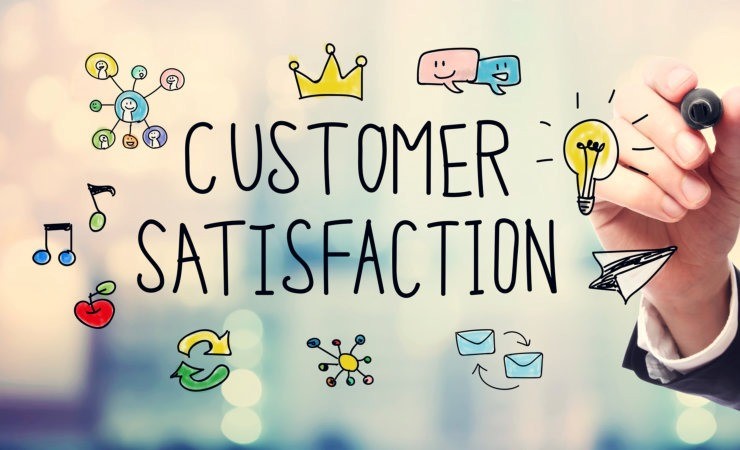Why Emotional Loyalty Matters
Why emotional loyalty matters you need to know. For most firms, establishing an emotional loyalty foundation of clients should be a top priority. Since this emotional relationship goes beyond financial rewards, emotional loyalty includes a stronger level of dedication to the brand.
You are least willing to create a true relationship with the customer if you place too much attention on reasonable deals. The sensible customer will stay only as long as you deliver a specific level of value. An emotional customer, on the other hand, is more inclined to stay with you. Why emotional loyalty matters you need to know.
“Strategies that solely rely on loyalty programmes to provide points and incentives miss out on a chance to gain greater interaction through emotional loyalty,” says Emily Collins, a Forrester Research analyst.

Types of Loyalty:
- Rational Loyalty – Loyalty based on interactions is known as rational loyalty. Quantitative indicators, such as points and rewards, are appealing to customers.
- Behavioral Loyalty- Customers continue to buy the same products based on past purchases and convenience, rather than preference, price, or emotional attachments.
- Emotional Loyalty – Consumers buy because of factors like customer care, narrative, trustworthiness, and generosity, not because of reward.
Behavioural loyalty, rational loyalty, and emotional loyalty are the 3 most common types of loyalty examples.
If a brand comes under the behavioural or logical loyalty umbrella, this would not hope to have completely loyal customers because the client is linked to the firm for some reason, such as cost or behaviours.
When that comes to getting sincere, devoted clients who are more emotionally invested in a firm, emotional loyalty emerges as the hero.
Emotion has emerged as the most important motivator of loyalty at the moment, and brands that focus on fostering this form of loyalty receive a variety of commercial benefits, including higher revenues, low-cost client acquisition, and brand loyalty, among other things.
Emotional loyalty, in reality, has the ability to lure back old clients and should so be prioritized.
Why Does Cultivating Emotional Loyalty Be the Only Hope for Brands Trying to Keep Customers?
Customer retention and emotional loyalty are strongly intertwined. Brands that grasp this concept stand a good chance of taking their retention strategies to the next level.
So, what is it about emotional loyalty that makes it so important today? The following are some logical arguments in favour of emotionally loyal customers:
Customers that are emotionally loyal are usually inclined to spend more.
Customers that are emotionally attached to your brand are more inclined to support the brand.
Customers that are emotionally attached to your brand are eager to promote the brand.
Customers who are emotionally loyal are more likely to provide honest, unbiased comments on a regular basis than other customers.
Therefore, in order to best use emotional loyalty, you must first understand what exactly motivates your current clients to engage with your brand. Others may be impressed by your participation in sustainability activities, while some may admire ethically produced products.
Gathering accurate and verifiable data can assist improve those areas, even more, driving clients to interact with your business for longer periods of time.
Emotional Loyalty Is More Important Than Behavioral Loyalty

The greatest example of behavioural loyalty is a consumer who visits a specific coffee shop near his office out of comfort.
Whereas the consumer might like goods or services, they are not entirely loyal to a particular brand in this case. As a result, when the workplace changes, the allegiance switches to a new coffee shop that is closer to the new office.
Loyalty based on behaviour is more of a comfort loyalty. Is there anything else that may have inspired the customer to develop a greater emotional bond with the brand, or is there was anything the brand might have done to strengthen the bond?
Clearly, the consumer cannot be expected to form a bond on his or her own. Aside from the fact that there is something particularly compelling about the brand or physical place that tempts the client to return, the majority of customers will come for a limited time before moving on when their geography or circumstances change.
In terms of the brand, perhaps there was something it could have done to strengthen the bond. If they are aware that some of the frequently visiting consumers work at a neighbouring office or corporate campus.
After obtaining the personal information from customers, the coffee company may attempt to pitch the deals more aggressively. Furthermore, rewarding the consumer at various times could have left a lasting impression on the customer.
Perhaps powerful enough for him to refer his friends or to encourage them to come in on discount days or to look at a specific bargain. Since we’re on the subject of coffee shops, Starbucks is known for having discounted happy hour days at different seasons of the year, which can be enough to entice someone to try a new drink or sample a beloved concoction that a friend has recommended.
In certain circumstances, such as a job relocation, the client may have been powerless to prevent the change in location. However, the link he has formed with the brand would automatically tempt him to refer people from his circle of acquaintances (or even visit again occasionally when possible).
Assisting the coffee business in generating consistent revenue, even from a previously convenience shopper. That’s the power of an emotional bond: it may entice even your ex-customers to think well of you if they leave on good terms.
When a business earns its trust, provides a personalized experience, and, most importantly, shares common values, customers create emotional loyalty. That’s exactly what your company should offer to clients that want nothing more than a “delightful experience.”
How Can Businesses Create Emotional Loyalty?

Companies’ emotional engagement is constantly linked to their fundamental messaging. What is the company’s most important concern? How do you win your customers’ trust and keep them engaged as a brand? Interaction is a crucial component. A customer wants to be recognised and appreciated, whether it’s through an in-store associate, email assistance, phone, or even social media.
Maintaining and gaining confidence through outstanding customer service is also essential. Customers are typically prepared to pay a bit extra if their money is going to a worthwhile cause, therefore corporate philanthropy plays a role. These are just a few of the many excellent methods for fostering emotional loyalty.
Other Emotional Loyalty Strategies:

- Creating unique shopping experiences
- Associating a distinct emotion with brand interactions is a common practise.
- Surprising and delightful
- Make product recommendations that are appropriate.
It all boils down to conducting good business when it comes to creating emotional loyalty. Provide a positive customer experience and meet the needs of your customers. Customers are motivated by transactional benefits, but we find that customers with stronger emotional ties are the most loyal.
It’s critical to strike a balance between retention techniques and emotional loyalty development through your brand’s messaging and service. You’re more likely to form a true bond with your customers if you establish trust. If you have any questions about how to include more emotional linkages into your brand’s message, please contact us for a consultation, and we’ll be happy to assist you along the way!
Brands can only achieve their goal of client retention through emotional loyalty, therefore failing to follow a plan that develops emotional loyalty, especially in the aftermath of a pandemic, could be more costly than intended. The goal here isn’t to get clients to buy from you again (though that would be nice).
To build strong emotional connections that naturally do the task for you, ensuring that your revenue remains stable and your growth remains stable or increases.
According to a poll, loyalty digital apps are more effective at attracting new customers than at retaining existing ones. That’s why converting one-time consumers into loyal, repeat clients are critical for small businesses. You have every reason to trust on Reward Stamp App around in 2022.
Customer loyalty programmes can be a powerful weapon. According to Mention, In the 2021 Customer Advocacy Report, 40% of customers are more likely to buy from firms that reward loyalty.
Final Takeaway
The first step in creating a customer loyalty programme is determining what type of programme is best for your company. This necessitates an understanding of your consumers’ motivations, purchasing behaviours, and how they derive value from your organization. As you can see, there are numerous possibilities available, but once you’ve chosen a Reward Stamp App, you can analyze and optimize it over time to achieve the greatest outcomes for your company and consumers.
Do you have any advice or suggestions for our small company readers to help them get off to a good start in the new year?

